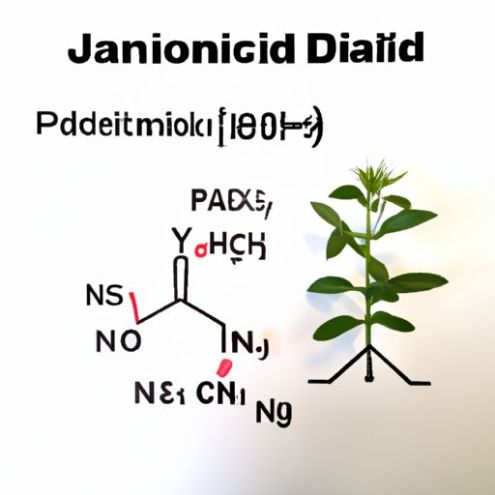Table of Contents
The Role of Jasmonic Acid in Plant Growth Regulation
Jasmonic acid is a Plant Growth Regulator that plays a crucial role in the growth and development of plants. It is a naturally occurring compound that is involved in various physiological processes, including seed germination, root growth, flowering, and defense against biotic and abiotic stresses. In recent years, jasmonic acid has gained significant attention in the field of plant biology due to its diverse functions and potential applications in Agriculture.
One of the key functions of jasmonic acid is its role in regulating plant growth and development. Studies have shown that jasmonic acid can promote root growth by stimulating the production of lateral roots and enhancing root elongation. This is important for the overall health and vigor of the plant, as a well-developed root system is essential for nutrient uptake and water absorption.
In addition to promoting root growth, jasmonic acid also plays a role in regulating flowering in plants. It has been shown to induce flowering in some plant species, while inhibiting flowering in others. This dual role of jasmonic acid in flowering regulation highlights its complex interactions with other plant hormones and environmental factors.
Furthermore, jasmonic acid is involved in the defense mechanisms of plants against various stresses, such as herbivory, pathogen attack, and environmental stressors. When a plant is under attack, it produces jasmonic acid as part of its defense response, which triggers a series of biochemical reactions that help the plant to fend off the attacker. This defense mechanism is crucial for the survival of plants in their natural Environment.
Sodium nitrophenolate is another plant growth regulator that has been shown to interact with jasmonic acid in regulating plant growth. Sodium nitrophenolate is a synthetic compound that is commonly used in agriculture to promote plant growth and increase crop yield. Studies have shown that sodium nitrophenolate can enhance the effects of jasmonic acid on root growth and flowering, suggesting a synergistic relationship between these two compounds.
Propyldihydrojasmonate (PDJ) is a derivative of jasmonic acid that has been developed as a plant growth regulator with enhanced stability and bioavailability. PDJ has been shown to have similar effects to jasmonic acid in promoting root growth and flowering, making it a promising alternative to traditional plant growth regulators.
Cytokinins are a class of plant hormones that work in conjunction with jasmonic acid to regulate plant growth and development. Cytokinins are known for their role in promoting cell division and differentiation, which are essential processes for plant growth. Studies have shown that jasmonic acid can interact with cytokinins to modulate their effects on plant growth, highlighting the complex network of interactions between different plant hormones.

In conclusion, jasmonic acid plays a crucial role in regulating plant growth and development by promoting root growth, flowering, and defense mechanisms. Its interactions with other plant growth regulators, such as sodium nitrophenolate, PDJ, and cytokinins, further highlight its importance in the complex network of plant hormone signaling. Understanding the role of jasmonic acid in plant growth regulation is essential for developing new strategies to improve crop yield and resilience to environmental stresses.

